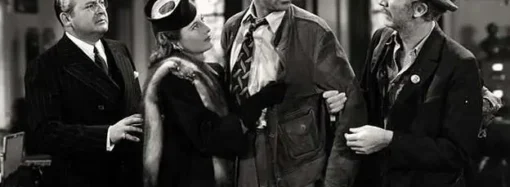The other day I picked up Thomas Paine’s Common Sense, the pamphlet that played a huge role in promoting the American War for Independence.
Knowing that Paine is generally regarded as a strong atheist, I was startled to see how many biblical references he used in his argument. It wasn’t long before I realized Paine was chiseling out a summary of biblical stories from the lives of the Patriarchs, to the Israelite judges, to Saul and David, the first kings of Israel, all as a preface to his reasoning on why America should shake off the yoke of the British government.
According to UShistory.org, Paine used these biblical references because “most people in America had a working knowledge of the Bible,” and because of this, Paine’s arguments struck a chord and enabled the colonists to relate and accept the truth of his words.
But Paine wasn’t the only American founder to draw on famous works from western civilization to influence the American people toward independent government. Consider the following examples:
- Patrick Henry peppered his famous “Give Me Liberty or Give Me Death” speech with references only those familiar with the Bible could understand (e.g. “Suffer not yourselves to be betrayed with a kiss,” “the battle is not to the strong alone,” etc.).
- James Madison relied heavily on Charles Montesquieu’s idea of separation of governmental powers when seeking to convince the public to accept the Constitution in the famed Federalist Papers.
- Founders from Thomas Jefferson to Ben Franklin were influenced by a number of John Locke’s writings, which then worked themselves into various arguments for American liberties, a fact which John Quincy Adams later attested:
“The Declaration of Independence and the Constitution of the United States, are parts of one consistent whole, founded upon one and the same theory of government, then new, not as a theory, for it had been working itself into the mind of man for many ages, and been especially expounded in the writings of Locke….”
Considering the familiarity the American founders and their audience obviously had with these key works from western civilization, it’s interesting to ponder America’s current familiarity with them. Unless I miss my guess, most young people – and even many adults – have likely never heard of Montesquieu’s Spirit of the Laws or Locke’s Two Treatises of Government, let alone read or studied them in school, especially considering that less than a quarter of American students are proficient in civics and only 12 percent are proficient in U.S. history.
And while recognition of the title we know as The Holy Bible may exist, even that may disappear in the coming years, particularly if it continues to make the American Library Association’s top 10 banned book list, as it did for the first time in 2015.
Whether we like the contents of these books or not, the fact is that they play key roles in our history and the rights and freedoms we enjoy today. If American schools continue to neglect teaching these key components of western civilization, and instead focus on more popular, “diversity-minded” subjects, are we in danger of growing ignorant as to how and why we exist as a nation and a people? And if we are ignorant of these things, can we expect to retain the freedom and rights we’ve long enjoyed?
“If a nation expects to be ignorant and free in a state of civilization, it expects what never was and never will be.” – Thomas Jefferson
















1 Comment
Michael Fuerst
June 8, 2024, 4:10 pmThe only important observation in this article is "less than a quarter of American students are proficient in civics and only 12 percent are proficient in U.S. history."
REPLY